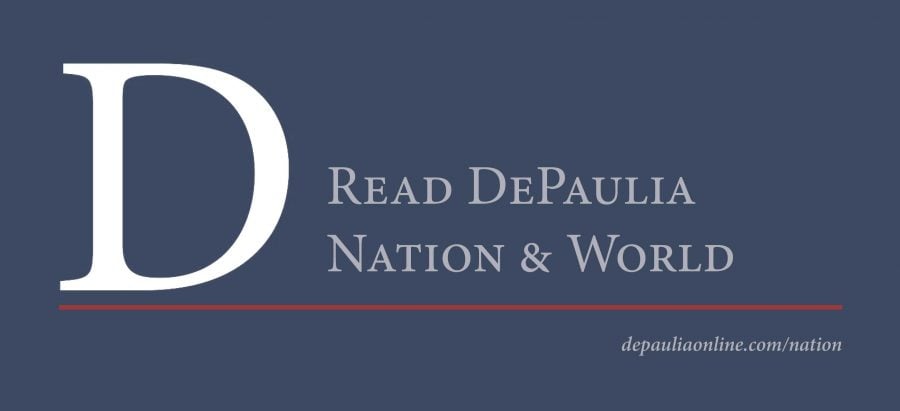On Sept. 9, the University of California (UC) announced it had divested $200 million worth of stock holdings in coal and oil sands companies in what some are calling the biggest university divestment yet.
Jagdeep Bachher, UC’s chief investment officer, explained the university’s decision to divest by citing the “slowing global demand, an increasingly unfavorable regulatory environment and a high threat of substitution” as factors that “pose insurmountable challenges to coal mining companies.”
Although UC divested $200 million, the university still has about $10 billion of its investments in fossil fuels and related industries. In total, the university’s 10 campuses have an investment portfolio that is valued at more than $98 billion.
Dianne Klein, a spokesperson for the university, spoke about UC’s economic policy regarding investments.
“Our chief responsibility is fiduciary,” Klein said. “We do believe that our taking a stand on these issues is influential. But I would not portray us in a moral sense; this is smart investing.”
Klein’s economic explanation demonstrates that the university’s decision to divest reflects the economic atmosphere of the time, rather than a symbolic effort to take a concrete stance on fossil fuels at large.
Reuters reports that “unlike some formal divestment campaigns, there has been no official change in University of California policy with regard to coal mining or oil sands companies.”
What this means is that if investing in coal becomes a smart economic move once again, the university would be “free to purchase shares of those companies,” said Klein.
Crediting poor financial conditions for coal investment, UC did not cite student, faculty and alumni fossil fuel divestment efforts as part of their decision to divest.
Greenpeace spokesman Joe Smyth predicts that more investors will divest from coal in the future for financial reasons.
“There’s a growing understanding that coal doesn’t just threaten our health and our climate,” Smyth said. “It’s a bad bet for investors as well, as coal mining companies have lost most of their value in recent years … So we should expect to see more divestment decisions from investors, especially those that are paying close attention to long-term trends.”
UC’s divestment announcement came a week after the California Assembly passed a bill with a vote of 43 to 27 that prompted the California Public Employees’ Retirement System and California State Teachers’ Retirement System funds to divest from coal mining companies.
Margaux Schindler, a recent alumna and current staff member at UC Santa Cruz, recognizes that her efforts in Fossil Free UC are still needed. Fossil Free UC is a campaign of students, faculty, staff, alumni and community members demanding that the University of California divest from the fossil fuel industry and reinvest in community-controlled solutions. Fossil Free UC has been campaigning for divestment for the past three years, according to the organization’s website.
“The divestment is not complete. It is not concrete and our university is not taking a stance on environmental justice, citing the reasoning (for divestment) as one that is economically driven,” Schindler said. “This is a big, well fought for step that all Fossil Free members deserve to take pride in and rejoice, but we must continue to be active and push for true justice.”
Schindler does coordination, development and outreach for Fossil Free UC, and understands the negative connotation that divestment often has.
“We find ourselves struggling with overcoming the myths around divestment, including it isn’t an efficacious way to generate change, it won’t bring down fossil fuel corporations and if you consume fossil fuels it is hypocritical to campaign for divestment,” she said. “While we have answers to debunk these myths, it can be difficult to reach the communities with these concerns.”
Other campus organizations similar to Fossil Free UC are also dedicated to university divestment, such as Harvard’s Divest Harvard. Bloomberg Business reports that Ivy League institutions Harvard and Yale have made no moves to divest from fossil-fuel holdings, and have made statements that point out “portfolios must be managed for the financial well-being of schools and climate change can be fought through teaching and research.”
Others argue that the symbolic power of divesting is greater than the goal to financially burden fossil fuel companies.
Karthik Ganapathy, a spokesman for the climate advocacy group 350.org, commented on the powerful implications divestment can have.
“The whole idea is basically to get the institutions that people trust — like Harvard or Stanford — to get folks to pull their money out of fossil fuels and take a stand against the industry,” he said. “The idea is that it will shift cultural attitudes by getting big institutions that people trust to take a moral stand against.”
Ganapathy also cited historic divestments from the tobacco industry that influenced the national perception of the industry.
The fossil-free divestment movement is standing strong, but it has a lot more ground to cover on the road to fostering a cleaner Earth.
“Some advice I would give (to divestment organizations) would be to push from all fronts, empower your students to protest, teach them to lead and develop their skills for talking to higher administration,” Schindler said. “There will be setbacks, victories and long drawn out battles. Pacing yourself, delegating and looking for support are key to fighting off the burn out.”
Perhaps most importantly, Schindler encourages activists to remind themselves of why they joined the effort in the first place.
“Celebrate the Earth that you are living on,” she said. “I tell my team all the time to get back to nature. Remember what we are fighting for and rejoice in what we have today.”




